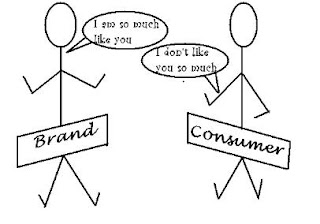
Defining a brand's personality is an exercise agencies and their clients love to indulge in. Everybody knows the theory--if the brand were a person, what kind of person would it be? However, most often the brand personality that emerges out of a quagmire of colorful powerpoints is an exact replica of the target consumer's personality.
Say we need to define the personality of a state-of-the-art tractor brand aimed at the rural prosperous farmer in his mid 40s. My guess is we'd be immediately tempted to assign the farmer's stereotypical personality traits to the brand--hard working, rich, rooted, etc. (albeit only after much heated debate over colourful powerpoint slides teeming with boxes, triangles, circles, arrows and keyholes!)
Slapping the target consumer's personality traits on the brand is not always wrong. In fact, it works in many cases. However, marketers must be open to the suggestion that the brand personality can also be distinctly different from the consumer's personality.
For instance, can the tractor brand be architected around the personality of the farmer's son, who, say, is getting modern education in a leading university? The son is the farmer's window to the modern world and the farmer (and his family) shares a lovely relationship with the son. The typical traits that would then emerge for the tractor brand are--smart, technology-savvy, wordly-wise, etc. Agreed, I'm assuming a lot of things here, but I'm just trying to illustrate with an example.
A brand's personality could include traits that the consumer aspires to emulate, or it could be a personality that the consumer absolutely loves or is pleasantly intrigued by. A brand enters into a relationship with the consumer and two people in a relationship need not be identical. David Aaker has an academic take on this in his book Building Strong Brands (excerpt here).
There are two problems with brands blindly mirroring consumer personalities. One, by creating a brand that is a mirror image of the consumer and nothing more, we stop selling aspiration. Two, we lose out on interesting relationship opportunities. "The consumer will not identify with this" is a much abused statement that branding professionals have to contend with every time they try to sculpt a brand with personality traits that are not exhibited by consumers.
I'm definitely not saying that brands must always be positioned diametrically opposite their consumer personality. In fact, many successful brands colour themselves in the hue of their consumers and yet are roaring successes. However, very interesting brand personalities could emerge if brand managers and marketers pause and think about traits that are close to their consumers' heart and yet are different.
Brands and consumers engage in relationships. At the end of the day, consumers judge a brand by the result of the relationship, no matter whether the brand reflects her personality or not. Surely, brands do not want to end up in a relationship like this.
Indian brands like Kingfisher and Raymond have developed and maintained well defined personalities through the years. Would love reader reactions on what they think are the personality traits of these brands.
Tuesday, 19 February 2008
Brand Personality--Should it mirror the consumer?
Posted by
Subir Ghosh
at
12:29
![]()
![]()
Subscribe to:
Post Comments (Atom)

No comments:
Post a Comment